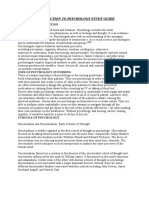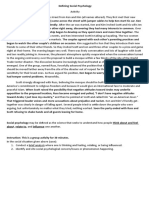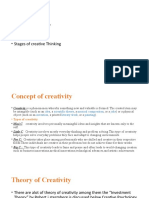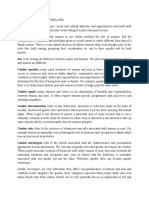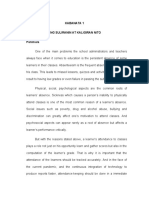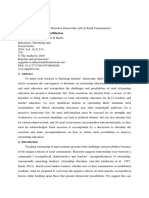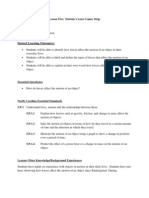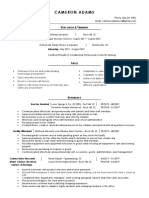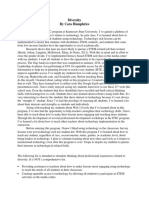100% found this document useful (1 vote)
644 views7 pagesUnit 1 Notes For Social Psychology
Social psychology is the scientific study of how individuals' thoughts, feelings, and behaviors are influenced by the presence of others. It focuses on understanding both individual behavior and the behavior of others, incorporating concepts from various disciplines such as anthropology, economics, and sociology. The study of social psychology employs scientific methods to explore human behavior, emphasizing values like accuracy, objectivity, skepticism, and open-mindedness.
Uploaded by
veramagalasiCopyright
© © All Rights Reserved
We take content rights seriously. If you suspect this is your content, claim it here.
Available Formats
Download as PDF, TXT or read online on Scribd
100% found this document useful (1 vote)
644 views7 pagesUnit 1 Notes For Social Psychology
Social psychology is the scientific study of how individuals' thoughts, feelings, and behaviors are influenced by the presence of others. It focuses on understanding both individual behavior and the behavior of others, incorporating concepts from various disciplines such as anthropology, economics, and sociology. The study of social psychology employs scientific methods to explore human behavior, emphasizing values like accuracy, objectivity, skepticism, and open-mindedness.
Uploaded by
veramagalasiCopyright
© © All Rights Reserved
We take content rights seriously. If you suspect this is your content, claim it here.
Available Formats
Download as PDF, TXT or read online on Scribd
/ 7


